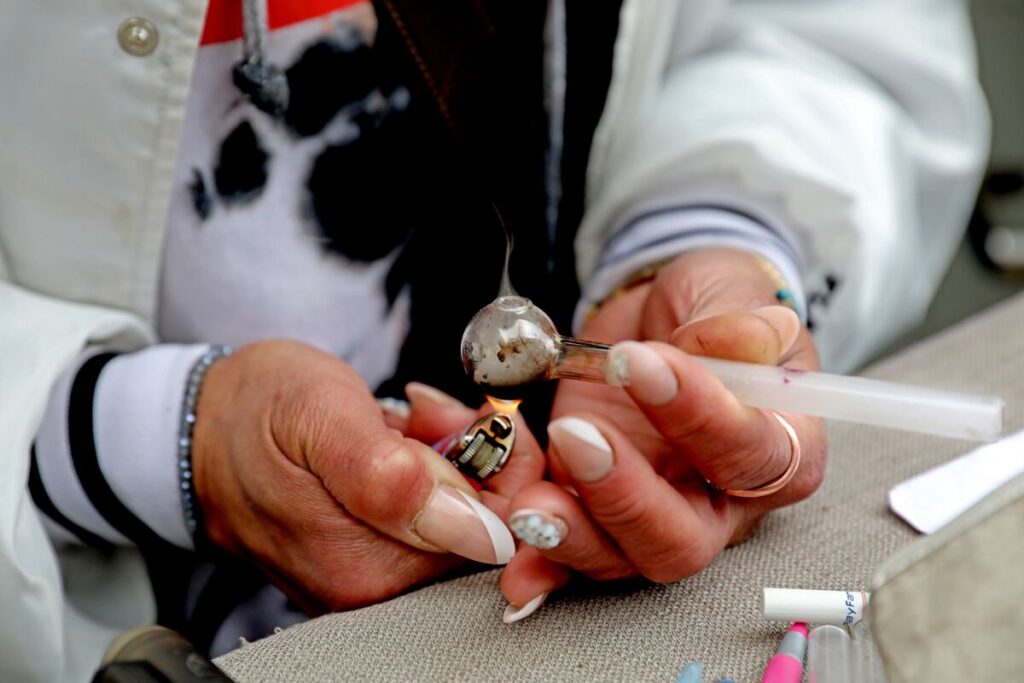April 26, 2024 at 1:37 PM PDT
British Columbia Requests Reinstatement of Public Drug Use Ban Following Criticism
British Columbia Premier David Eby announced on Friday that the province is seeking to reimpose a ban on public drug use, marking a significant reversal of its previous decision to decriminalize certain illegal drugs.
Eby emphasized the paramount importance of public safety, stating, “While we are caring and compassionate for those struggling with addiction, we do not accept street disorder that makes communities feel unsafe.”
In January 2023, British Columbia legalized the possession for personal use of small amounts of cocaine, methamphetamine, MDMA, and opioids like fentanyl, aiming to address drug use as a public health concern and prevent individuals from entering the criminal justice system.
However, various stakeholders, including healthcare professionals, law enforcement agencies, local leaders, and the public, have voiced concerns over visible drug use in public spaces such as bus shelters, parks, and hospitals. Similar to Oregon’s experience, which reversed a comparable drug decriminalization experiment due to public backlash, British Columbia faced resistance.
Last year, Eby’s government attempted to prohibit drug use in numerous public areas through provincial legislation, but the measure was legally contested and halted in provincial court. Now, the premier seeks federal intervention to significantly limit British Columbia’s exemption in the Controlled Drugs and Substances Act, as criminal law jurisdiction lies with the Canadian government.
Expressing frustration over the slow legal proceedings and escalating drug-related issues in public settings, Eby announced a more stringent approach. He emphasized the need for “tough love” and confirmed Prime Minister Justin Trudeau’s commitment to collaborate on implementing the new policy.
Under the proposed changes, drug possession would remain decriminalized in private residences, legally designated sheltering places, overdose prevention sites, and drug-checking facilities. The province is collaborating with law enforcement agencies to provide guidance on refraining from arresting or charging individuals solely for drug possession, unless public safety is compromised or disturbances occur.
The surge in fentanyl-related fatalities, a highly potent synthetic drug, has exacerbated the public health crisis in North America, underscoring the urgency of addressing drug policies.
The issue of drug decriminalization has become a political battleground for British Columbia’s governing New Democratic Party, especially with the upcoming October reelection. Eby’s opponents have seized on the drug policy as a point of contention, aiming to undermine the NDP’s electoral prospects.
While opinion polls have generally favored the NDP, a recent survey by Mainstreet Research indicated a shift, with the Conservative Party of BC leading for the first time.

